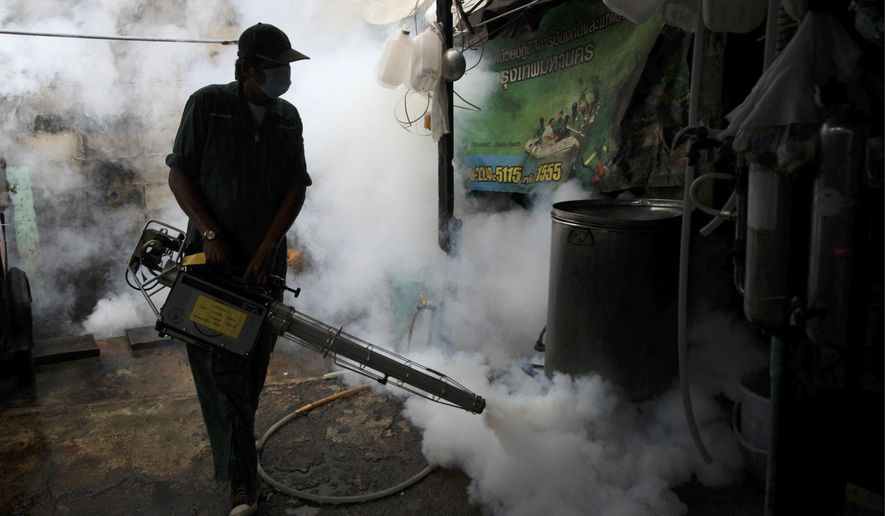The Obama administration said Monday it can start developing better ways to detect the Zika virus and knock out mosquitoes that carry the disease, while forging ahead with a vaccine trial that began in August, now that Congress has broken a months-long stalemate and posted $1.1 billion for the fight.
The Department of Health and Human Services will receive the lion’s share of the new Zika funding — $933 million — and split most of it between mosquito surveillance and vaccine development through the National Institutes of Health and a research authority known as BARDA, which is supporting several private-sector trials.
HHS will use some of the mosquito-control money to backfill $44 million in public health and emergency funds that it swiped from states to get started on Zika while Congress bickered over a $1.9 billion request that President Obama submitted in February.
HHS will split the remaining funds — about $140 million — among efforts to track pregnant women (the disease can cause serious birth defects), reimburse health providers, and support community health centers in hard-hit Puerto Rico and the other U.S. territories.
“Funding will give us the means to better fight Zika and better protect babies,” said Dr. Thomas Frieden, director of the Centers for Disease Control and Prevention.
Congressional Republicans balked when Mr. Obama requested nearly $2 billion for the Zika fight without finding budget cuts elsewhere to pay for it. As a result, the administration took nearly $600 million from other accounts, mainly the lingering fight against Ebola in West Africa, to combat Zika.
GOP leaders eventually melded competing House and Senate plans into a $1.1 billion package that was partially paid for and did not include Planned Parenthood in its birth control plans.
Democrats balked at the terms, and the standoff lasted until Congress passed a stopgap funding bill last week that offered $1.1 billion for Zika, with $400 million in offsetting cuts, and no prohibition on funding for Planned Parenthood-aligned clinics in Puerto Rico.
Dr. Anthony Fauci, the infectious diseases director at NIH, said his $152 million cut of the money will allow researchers to smoothly pivot from its 80-person, phase 1 vaccine trial in the states to a broader, phase 2 trial in places such as Latin America, the Caribbean and Puerto Rico as soon as January.
Administration officials said Congress’ delay came at a real cost, however, citing $81 million HHS transferred from things like cancer and AIDS research to keep its Zika campaign afloat, while taking $510 million in funding that had been earmarked for West Africa.
“We’re still engaged in a serious way in our Ebola efforts,” HHS Secretary Sylvia Mathews Burwell said.
Dr. Frieden also said that without funding in place, his agency couldn’t “get a running start” on efforts to understand Zika or solicit ideas from universities that might be interested in finding new ways to kill mosquitoes.
As it stands, Aedes aegypti mosquitoes have spread the Zika virus throughout Latin America and infected more than 21,000 people in Puerto Rico, plus nearly 150 more in Florida.
Twenty-two babies have been born in the U.S. with Zika-related defects.
Last week, the CDC said men who’ve possibly been exposed to the Zika virus should wait at least six months before trying to conceive with their female partners, even if they haven’t shown symptoms of the disease — a major shift from its previous advice of eight weeks.
It also said men in that category should also use a condom during sex for six months.
• Tom Howell Jr. can be reached at thowell@washingtontimes.com.




Please read our comment policy before commenting.